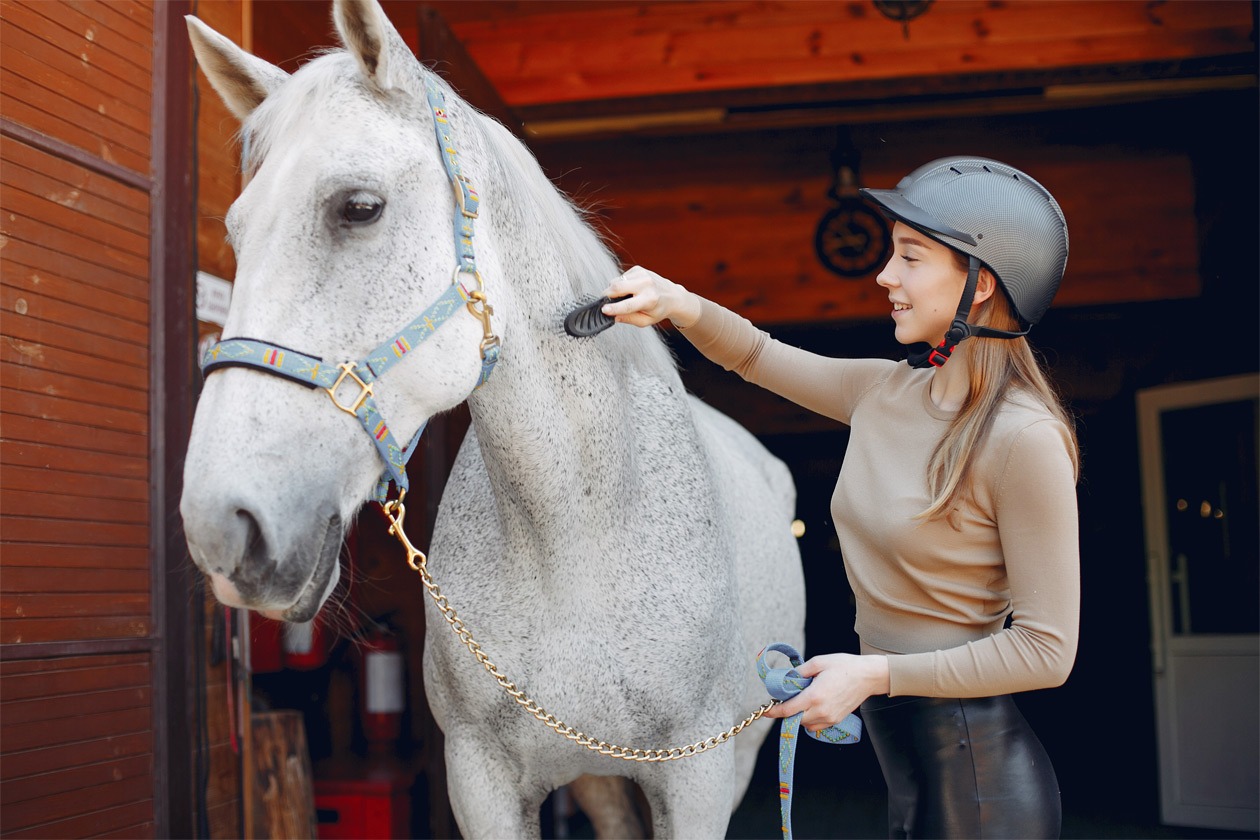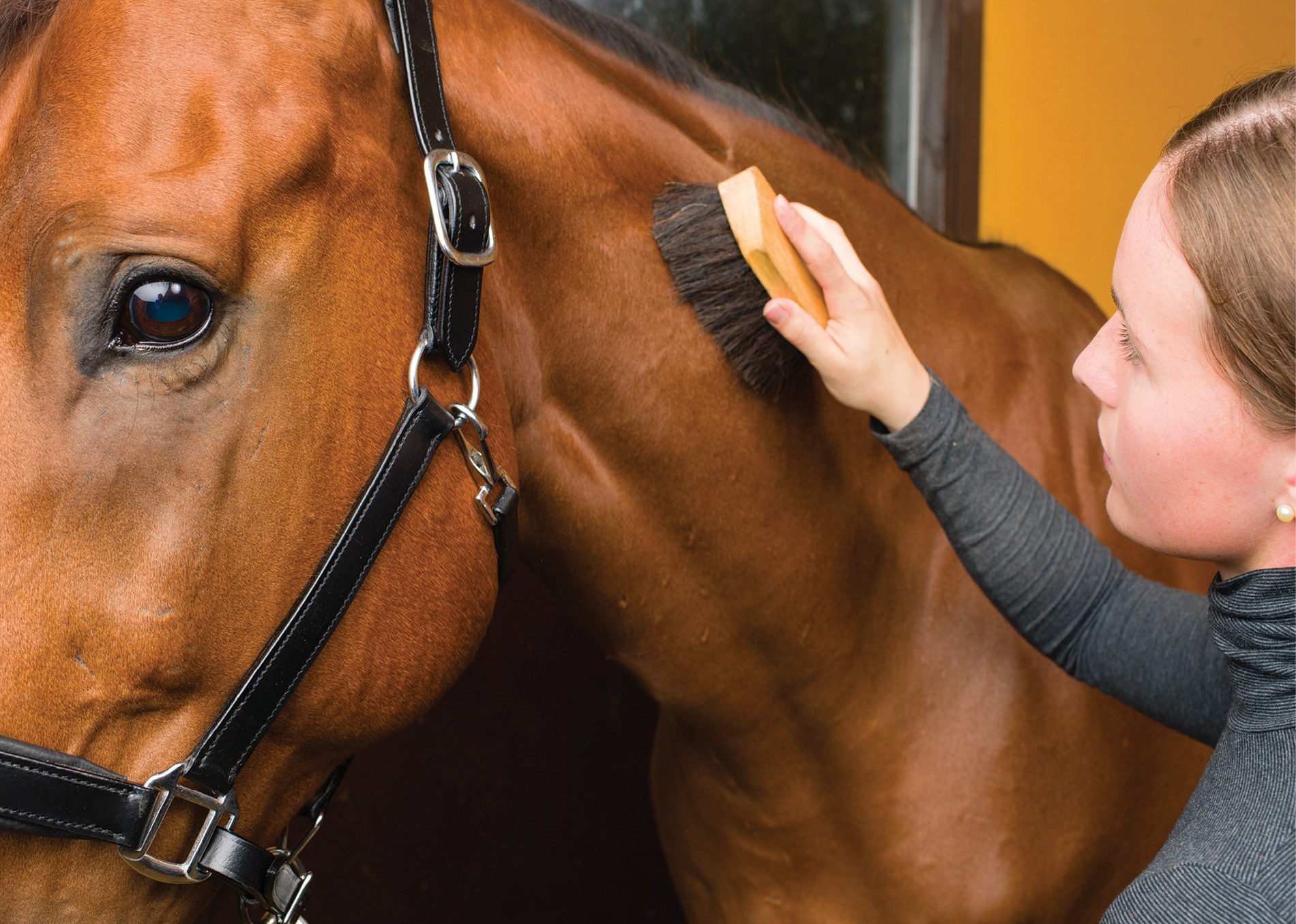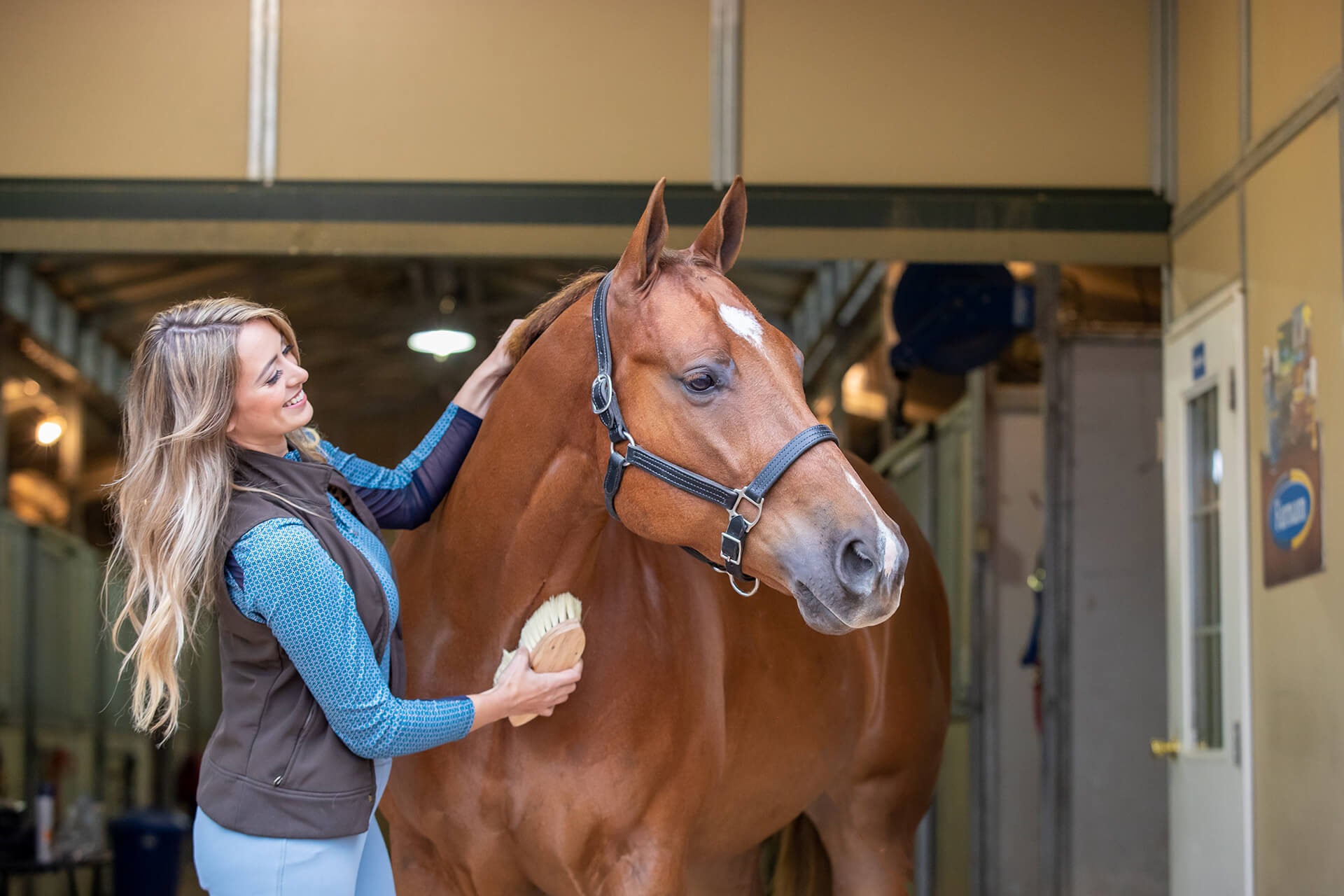

Caring for a horse involves more than just feeding and grooming. It requires a deep understanding of their physical and emotional needs, as well as a commitment to providing proper nutrition, healthcare, and living conditions. Whether you’re a new horse owner or an experienced equestrian, this guide will provide you with essential information on how to care for your horse and ensure their health and well-being.
Nutrition
Forage: Horses are grazing animals and require constant access to forage, such as hay or pasture, to maintain their digestive health.
Concentrates: Depending on your horse’s workload and nutritional needs, concentrates like grains or pellets may be necessary to supplement their diet.
Water: Clean, fresh water should always be available to horses to prevent dehydration and aid in digestion.
Supplements: Some horses may require additional supplements, such as vitamins or minerals, to balance their diet and ensure optimal health.
Shelter and Living Conditions
Shelter: Horses should have access to shelter, such as a stable or run-in shed, to protect them from the elements.
Pasture: Regular turnout in a safe, well-maintained pasture is essential for your horse’s physical and mental well-being.
Bedding: Provide clean, comfortable bedding, such as straw or shavings, in your horse’s stall to ensure they have a comfortable place to rest.
Grooming and Care
Grooming: Regular grooming not only keeps your horse’s coat clean and shiny but also helps to bond with them and monitor their health.
Hoof Care: Regular trimming and shoeing by a qualified farrier are essential for maintaining your horse’s hoof health.
Dental Care: Regular dental check-ups and floating (filing) of your horse’s teeth are necessary to ensure they can chew their food properly.
Healthcare
Veterinary Care: Regular veterinary check-ups are essential for monitoring your horse’s health and addressing any medical issues promptly.
Vaccinations: Follow your veterinarian’s recommendations for vaccinations to protect your horse from common diseases.
Deworming: Develop a deworming schedule in consultation with your vet to prevent parasite infestations.
Exercise and Training
Exercise: Regular exercise is essential for keeping your horse fit and healthy. This can include riding, lunging, or turnout in a pasture.
Training: Consistent, gentle training is important for developing a strong bond with your horse and ensuring they are well-behaved and responsive.
Conclusion
Caring for a horse requires dedication, patience, and a willingness to learn. By providing proper nutrition, shelter, grooming, healthcare, and exercise, you can ensure your horse leads a happy, healthy life. This guide serves as a starting point for your journey into horse care, providing you with the essential information you need to be a responsible and knowledgeable horse owner.




At saddlepadhorse.com, we are excited to present our innovative Flip Flop Saddle Pads. These dual-sided saddle pads are designed for riders who value versatility and convenience.
© 2024 saddlepadhorse.com. All rights reserved.